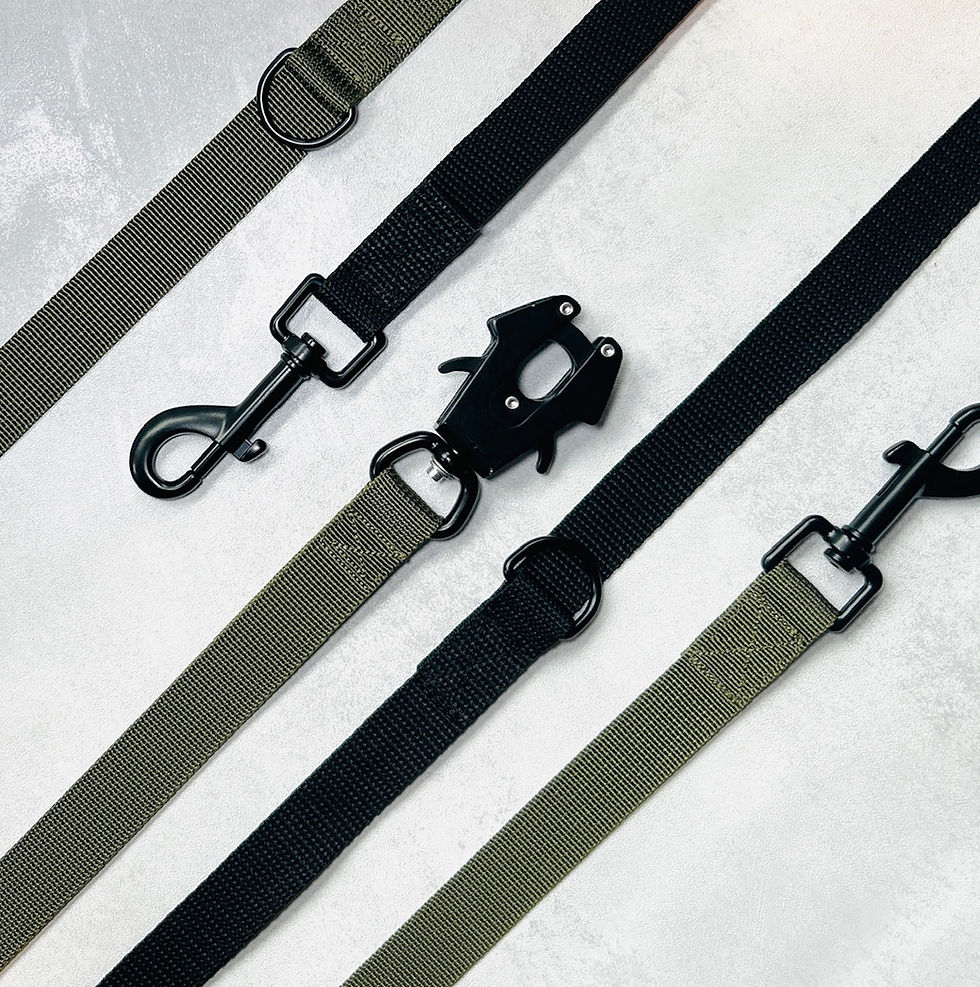Building Trust with Rescue Dogs: Especially Puppy Farm Survivors
- Cat Hamilton

- Apr 27
- 3 min read
Welcoming a rescue dog into your home is a deeply rewarding act of love and compassion, but when that rescue has come from a background of trauma, such as a puppy farm, it can feel overwhelming knowing where to begin.
These dogs, especially the "mums" who spent their lives breeding litter after litter in harsh conditions, often arrive emotionally shut down, physically fragile, and deeply mistrustful of human contact.
While your instinct may be to shower them with affection to "make up for" their painful past, it's important to understand that for many of these dogs, love feels unfamiliar; and even frightening at first. True healing happens not by doing more, but by doing less, and by creating a world where your rescue dog can choose to trust you, at their own pace.
Why Puppy Farm Survivors Need a Different Approach
Dogs rescued from puppy farms often have:
Lack of socialisation: They may have spent years in cages, rarely handled with kindness.
Poor physical health: Dental issues, infections, joint problems, and malnutrition are common.
Deep emotional trauma: Repeated pregnancies, isolation, unable to toilet outside of their confinement, and rough handling erode their basic sense of safety.
Limited life experience: Everyday things like carpets, stairs, human voices, or even grass can be overwhelming.
In short, these dogs aren’t just shy; they are survivors navigating a brand new world without the basic life skills most dogs learn early on.
Key Principles for Building Trust
1. Create a Calm, Predictable Environment
Keep noise and activity levels low at home, especially in the early days.
Set up a safe space — a quiet room or cozy corner where they can retreat and not be disturbed.
Stick to simple routines for feeding, toileting, and gentle walks. Predictability builds safety.
2. Let the Dog Set the Pace
Allow them to come to you when they are ready.
Avoid reaching out or looming over them. Sit or lie on the floor nearby and let your presence be soft and non-threatening.
Respect their signals. Turning away, freezing, or lip licking are ways of saying "I'm overwhelmed", not an invitation to push closer.
3. Reframe "Love" as Space and Safety
For a traumatised dog, "love" doesn't look like hugs, kisses, or constant attention.
It looks more like:
Space to breathe.
Gentle, neutral company with no pressure to interact.
Consistency in your actions and moods, so nothing feels unpredictable.
Protecting them from overwhelm, even if that means gently refusing well-meaning visitors' requests to pet or hold the dog.
4. Use Your Energy, Not Just Your Actions
Dogs are deeply attuned to energy. If you're tense, desperate for their affection, or frustrated at slow progress, they will feel it.
Instead:
Breathe deeply around them.
Move slowly and mindfully.
Hold an inner attitude of patience and acceptance; like saying quietly, “You’re safe. You’re free to be.”
5. Celebrate the Tiny Wins
For these dogs, tiny steps are massive milestones.
A tail flick.
A soft glance.
Taking a treat from your hand.
Venturing a little closer without recoiling.
Each small act of trust deserves quiet acknowledgment, not overwhelming excitement. Let them know, gently, that you see and appreciate their courage.
Practical Tips for Daily Life
Harness walking: Some ex-breeding dogs have never worn a collar or lead. Start indoors first, letting them drag a lightweight lead under supervision to get used to the feeling.
Feeding: Hand-feeding can build positive associations, but don’t force it. You can start by simply being nearby during meals. If they are resource guarding then more intervention may be required.
Socialising: Keep initial exposure to new people, animals, and places extremely limited. Focus first on helping them bond with you.
Handling: Vet visits and grooming may need to be broken down into micro-steps, using lots of calm reassurance and treats. Consider a "fear free" certified vet if possible.
Sleeping: Some rescue dogs need weeks or even months before they can settle into a deep, relaxed sleep in a new home. Be patient and celebrate progress.
Healing Takes Time
It’s natural to want your rescue dog to experience happiness quickly. But healing from deep trauma isn’t linear. There may be setbacks. They may stay wary longer than you hoped. Progress may seem invisible some days.
But trust is being built, even in silence. Every moment you allow them to 'be' without expectation, pressure, or judgment, you are planting seeds of safety. Over time, and with a lot of consistency, awareness and mindful actions, many puppy farm survivors learn to not just survive, but thrive; becoming affectionate, playful, and deeply loyal companions.











Comments